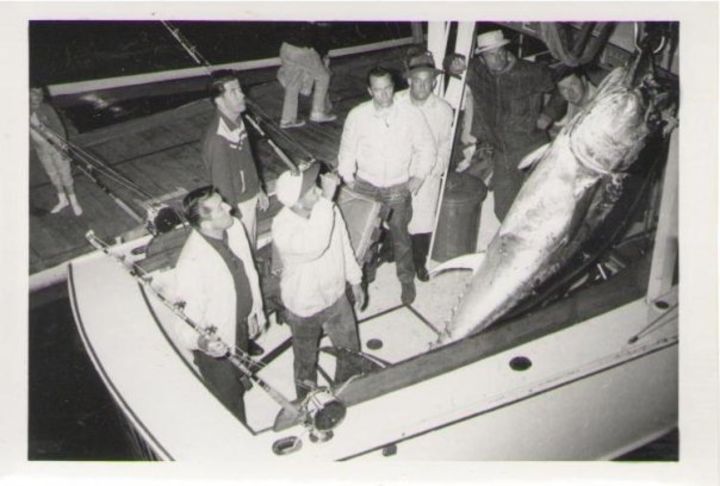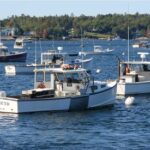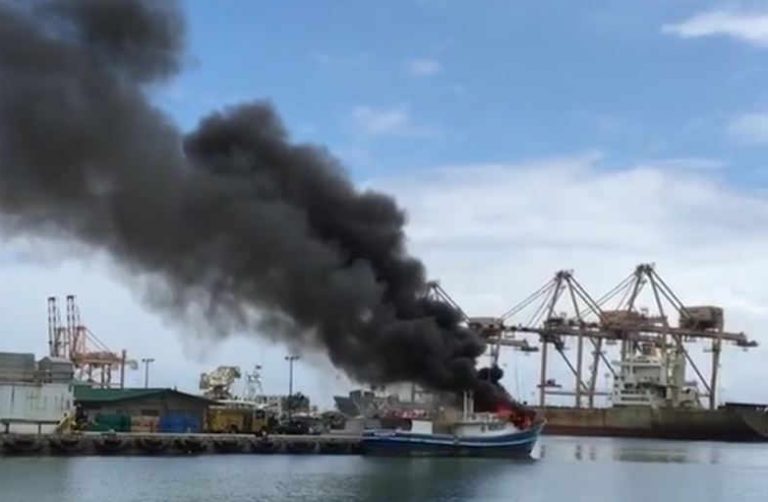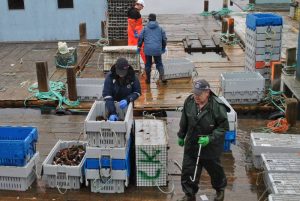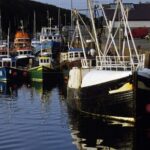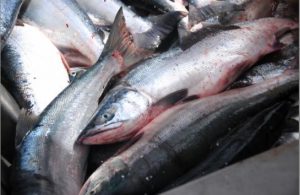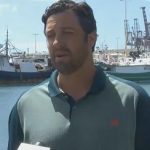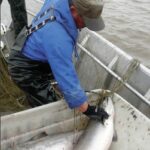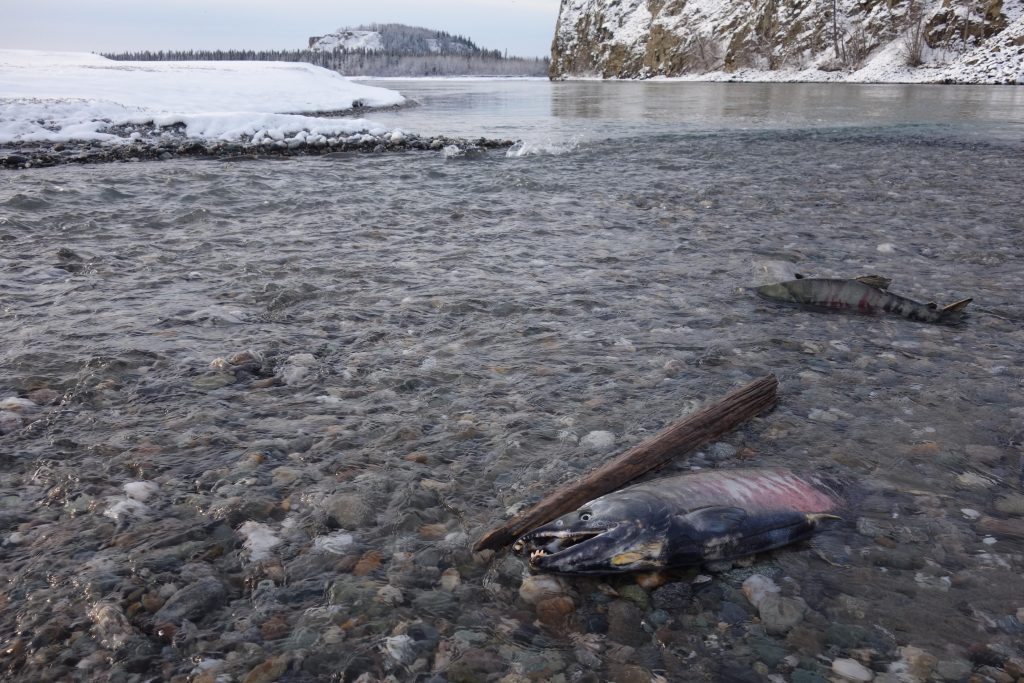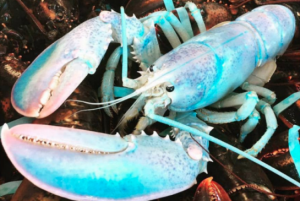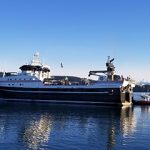Monthly Archives: April 2017
Calvert fisherman Laurie Sullivan remembered fondly
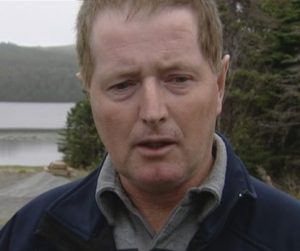 People in Calvert, on the southern shore of Newfoundland’s Avalon Peninsula, are mourning the loss of fisherman Laurie Sullivan, 59, who died Wednesday after he was pulled from the water near the town’s wharf. “It’s such a shock to everybody and his passing has had an impact on everybody,” said Denise Sullivan, a long-time friend and neighbor. Residents of the community say Sullivan was working alone on his boat, the Princess Shaneen, and somehow he ended up in the ocean near it. Like other fishermen in Calvert, he was getting ready to go crab fishing. It was icy at the time, and it’s believed no one saw or heard him fall from the deck. Sadly, continue reading the story here 15:54
People in Calvert, on the southern shore of Newfoundland’s Avalon Peninsula, are mourning the loss of fisherman Laurie Sullivan, 59, who died Wednesday after he was pulled from the water near the town’s wharf. “It’s such a shock to everybody and his passing has had an impact on everybody,” said Denise Sullivan, a long-time friend and neighbor. Residents of the community say Sullivan was working alone on his boat, the Princess Shaneen, and somehow he ended up in the ocean near it. Like other fishermen in Calvert, he was getting ready to go crab fishing. It was icy at the time, and it’s believed no one saw or heard him fall from the deck. Sadly, continue reading the story here 15:54
FISH-NL – A statement on Friday’s protest in St. John’s
 The Federation of Independent Sea Harvesters of Newfoundland and Labrador (FISH-NL) describes the protest Friday at the headquarters of the federal Department of Fisheries and Oceans as a warning of rising unrest within the fishing industry. “Desperate times in the fishery lead to desperate measures,” says Ryan Cleary, President of FISH-NL. “We do not condone violence or civil unrest, but some harvesters around the province are being pushed to the breaking point and have been openly talking about it for months.” “The federal government must realize that the crisis in the fishery today is unprecedented — worse than the groundfish moratoria of the early 1990s — because in most cases harvesters have no other species to turn to.” click here to read the press release 14:20
The Federation of Independent Sea Harvesters of Newfoundland and Labrador (FISH-NL) describes the protest Friday at the headquarters of the federal Department of Fisheries and Oceans as a warning of rising unrest within the fishing industry. “Desperate times in the fishery lead to desperate measures,” says Ryan Cleary, President of FISH-NL. “We do not condone violence or civil unrest, but some harvesters around the province are being pushed to the breaking point and have been openly talking about it for months.” “The federal government must realize that the crisis in the fishery today is unprecedented — worse than the groundfish moratoria of the early 1990s — because in most cases harvesters have no other species to turn to.” click here to read the press release 14:20
Louisiana not ready for early shrimp opener, Shrimp fishermen agree
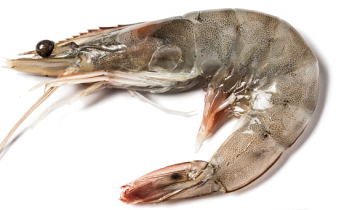 While shrimp conditions are good this year, the Louisiana Department of Wildlife and Fisheries Commission isn’t ready to open the spring season early. Commission members said at their meeting today in Baton Rouge that they want more data before setting the dates for the season. Nearly all of the shrimpers at the meeting said they would rather wait for the season to open at the normal time so the shrimp can grow to be larger. The spring shrimp season usually opens in mid to late May. LDWF biologist Jeff Marx said data he’s collected show better conditions than in previous years. Shrimp size, growth and development generally depend on the amount of rainfall, the temperature and salinity level of the water. But shrimpers spoke against an early season. click here to continue reading the story 13:34
While shrimp conditions are good this year, the Louisiana Department of Wildlife and Fisheries Commission isn’t ready to open the spring season early. Commission members said at their meeting today in Baton Rouge that they want more data before setting the dates for the season. Nearly all of the shrimpers at the meeting said they would rather wait for the season to open at the normal time so the shrimp can grow to be larger. The spring shrimp season usually opens in mid to late May. LDWF biologist Jeff Marx said data he’s collected show better conditions than in previous years. Shrimp size, growth and development generally depend on the amount of rainfall, the temperature and salinity level of the water. But shrimpers spoke against an early season. click here to continue reading the story 13:34
Lawsuit filed seeking $464,000 in lawyer fees, Former fish auction owners renew battle with NOAA
The long and torturous legal battle with NOAA that sent the former Gloucester Fish Exchange  into bankruptcy and to its ultimate sale may not be over just yet. The owners of GFX — the forerunner to the Cape Ann Seafood Exchange on Harbor Loop — are suing NOAA in federal court to recoup about $464,000 in legal fees the company paid during its battle and ultimate settlement with the federal fisheries regulator. The action names current Commerce Secretary Wilbur Ross, the Commerce Department and the National Oceanic and Atmospheric Administration as defendants. The suit, prompted by NOAA’s final decision on March 6 denying GFX any reimbursement for legal fees, rekindles the battle that began as far back as 2005. The long-running affair resulted in two NOAA enforcement actions against the former auction — and a subsequent apology by then Commerce Secretary Gary Locke and NOAA administrator Jane Lubchenco for the excesses of the agency’s law enforcement unit. Click here to continue reading the story 13:07
into bankruptcy and to its ultimate sale may not be over just yet. The owners of GFX — the forerunner to the Cape Ann Seafood Exchange on Harbor Loop — are suing NOAA in federal court to recoup about $464,000 in legal fees the company paid during its battle and ultimate settlement with the federal fisheries regulator. The action names current Commerce Secretary Wilbur Ross, the Commerce Department and the National Oceanic and Atmospheric Administration as defendants. The suit, prompted by NOAA’s final decision on March 6 denying GFX any reimbursement for legal fees, rekindles the battle that began as far back as 2005. The long-running affair resulted in two NOAA enforcement actions against the former auction — and a subsequent apology by then Commerce Secretary Gary Locke and NOAA administrator Jane Lubchenco for the excesses of the agency’s law enforcement unit. Click here to continue reading the story 13:07
Western rock lobster price falls due to a drop in China demand, cheaper American exports
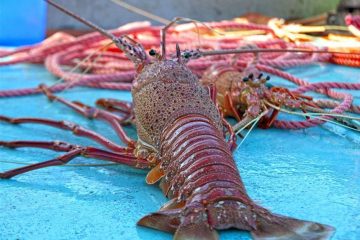 The value of premium species of lobster sourced from Western Australia has plummeted, causing the lucrative industry to grind to a near halt. The western rock lobster ‘beach price’, which is the price professional fishers receive direct from processors, has slumped to about $50 a kilogram. Compared to six months ago, the price has shed about 30 per cent of its value. Mark Rutter is the general manager of marketing and business development at the Geraldton Fishermen’s Co-operative, which is the largest processor and exporter of rock lobsters in Australia. “It’s very hard to pinpoint exactly what’s driving the prices but certainly we are experiencing very low prices … in a recent historical sense,” he said. continue reading the story here 11:36
The value of premium species of lobster sourced from Western Australia has plummeted, causing the lucrative industry to grind to a near halt. The western rock lobster ‘beach price’, which is the price professional fishers receive direct from processors, has slumped to about $50 a kilogram. Compared to six months ago, the price has shed about 30 per cent of its value. Mark Rutter is the general manager of marketing and business development at the Geraldton Fishermen’s Co-operative, which is the largest processor and exporter of rock lobsters in Australia. “It’s very hard to pinpoint exactly what’s driving the prices but certainly we are experiencing very low prices … in a recent historical sense,” he said. continue reading the story here 11:36

Updated – Protesters smash window, occupy DFO building in St. John’s over shrimp quota cuts
Police were called Friday as members of the Newfoundland and Labrador Independent Fish Harvesters’ Association protested at Fisheries and Oceans Canada headquarters in St. John’s, pushing their way into the building. Around 50 protesters went inside the federal building on White Hills Road, to protest against new quota cuts for the province’s inshore shrimp fishery. CBC has learned that employees are being asked to secure themselves in their offices. By 10 a.m., a window had been broken at the facility, moments after CBC recorded a video of a man kicking the window. RNC officers were on the scene by 10:30 a.m., as protesters entered the cafeteria in the building, and were meeting officials of the department Click here to read the story 11:15
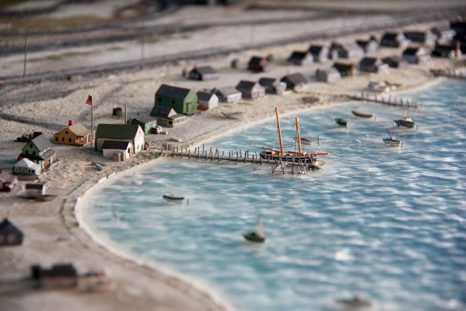
Montauk 1915: When the Village Was on the Arc of Fort Pond Bay
The wooden shacks composing this village had all been built around 1895 by people who did not own this land. They were squatters on this arc of the bay on land owned by the Long Island Rail Road. The railroad did not stop this village from being built. In fact, they encouraged it. Probably it was because money changed hands between these people and the railroad. The people were commercial fishermen and their families. And they brought in tons of fish from the sea to that single pier and paid for the railroad trains nearby to transport their daily haul of fish to the thriving markets in New York City.,, These fishermen were not even Americans. They were Canadians. They were out of port towns in Nova Scotia, a long way from home, and they had full holds of fish to bring to market. And here, along the arc of this bay, was this nearly abandoned railroad station in the middle of nowhere. There was even a long pier. They’d tie up and meet the stationmaster there. Yes, the tracks led 110 miles straight into Manhattan. A very interesting read! click here to read the story, and click the link to the Pelican The Single Worst Fishing Disaster in the History of Montauk 09:40

Fishers blocks access to DFO building in St. John’s
Members of the Newfoundland and Labrador Independent Fish Harvesters’ Association were outside Fisheries and Oceans Canada headquarters Friday morning. They’re blocking employees from entering the federal building on White Hills Road, to protest against new quota cuts for the province’s inshore shrimp fishery. The fishermen are outraged by lower quotas for the inshore shrimp fishery off the northeast coast of Newfoundland. The new quota for a fishing zone known as Area 6 will be just 10,400 tonnes, less than a quarter of the 2015 quota of 48,196 tonnes. Last year’s quota had been set at just under 28,000 tonnes. click here to read the story 08:56
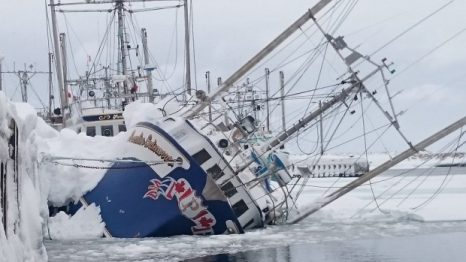
Cluney Pardy’s family owned fishing vessel is listing at a 45-degree angle in Musgrave Harbour
A family’s fishing vessel — and their family business — is keeled over in Musgrave Harbour after wicked storms that blasted the northeast coast of Newfoundland. Fisherman Cluney Pardy says the Baccalieu Endeavour was discovered on Tuesday afternoon listing on the port side. “When we got there the boat was listed out a bit,” he said. “We put a loader on her but we couldn’t hold her, she just kept going on her side.” Pardy says he has no idea what caused the boat to push over — but he knows it’s a big loss for him and his family business. A very sad situation. Click here to see more images, and read the story 15:43
Thiele Acts for Fishermen ‘Under Siege’
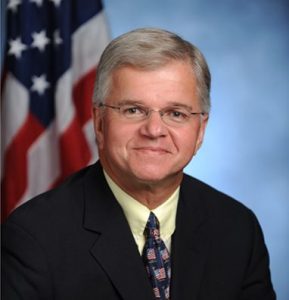 Assemblyman Fred W. Thiele Jr. has introduced a package of legislation intended to aid the commercial fishing industry. Two of the three bills were introduced in the 2015-16 legislative session. One would direct the state attorney general to bring legal action against the National Marine Fisheries Service, or any other federal agency, to challenge existing quotas that the bill calls inequitable and discriminatory against New York State commercial fishermen. The bill is now in the Assembly’s environmental conservation committee. A second bill, also introduced in the 2015-16 legislative session, adds a new element in its current form. It would establish a commercial fishing advocate and, in its new version, create a commercial fishing jobs development program under State Department of Economic Development jurisdiction. Gov. Andrew M. Cuomo vetoed the bill last year, Mr. Thiele said yesterday. continue reading the story here 15:11
Assemblyman Fred W. Thiele Jr. has introduced a package of legislation intended to aid the commercial fishing industry. Two of the three bills were introduced in the 2015-16 legislative session. One would direct the state attorney general to bring legal action against the National Marine Fisheries Service, or any other federal agency, to challenge existing quotas that the bill calls inequitable and discriminatory against New York State commercial fishermen. The bill is now in the Assembly’s environmental conservation committee. A second bill, also introduced in the 2015-16 legislative session, adds a new element in its current form. It would establish a commercial fishing advocate and, in its new version, create a commercial fishing jobs development program under State Department of Economic Development jurisdiction. Gov. Andrew M. Cuomo vetoed the bill last year, Mr. Thiele said yesterday. continue reading the story here 15:11
Brooklyn Seafood Dealer Pleads Guilty for Illegally Trafficking American Eels
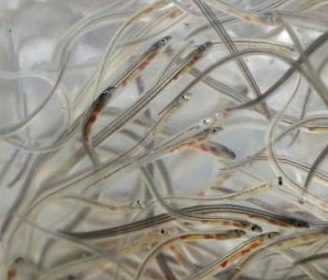 Tommy Water Zhou pled guilty in federal district court in Norfolk, Virginia, to trafficking more than $150,361 worth of juvenile American eels, aka “elvers” or “glass eels,” in violation of the Lacey Act. As part of his guilty plea, Zhou admitted to illegally selling or purchasing elvers in interstate commerce, which had been harvested illegally in Virginia. This plea was the result of “Operation Broken Glass,” a multi-jurisdiction U.S. Fish and Wildlife Service (USFWS) investigation into the illegal trafficking of American eels. To date, the investigation has resulted in guilty pleas for eleven individuals whose combined conduct resulted in the illegal trafficking of more than $2.75 million worth of elvers. In 2013, the defendant obtained a Maine elver dealer license, authorizing him to purchase and resell elvers harvested in Maine. Thereafter, using his Maine dealer license to cover his illegal activity,,, Click here to read the story 14:23
Tommy Water Zhou pled guilty in federal district court in Norfolk, Virginia, to trafficking more than $150,361 worth of juvenile American eels, aka “elvers” or “glass eels,” in violation of the Lacey Act. As part of his guilty plea, Zhou admitted to illegally selling or purchasing elvers in interstate commerce, which had been harvested illegally in Virginia. This plea was the result of “Operation Broken Glass,” a multi-jurisdiction U.S. Fish and Wildlife Service (USFWS) investigation into the illegal trafficking of American eels. To date, the investigation has resulted in guilty pleas for eleven individuals whose combined conduct resulted in the illegal trafficking of more than $2.75 million worth of elvers. In 2013, the defendant obtained a Maine elver dealer license, authorizing him to purchase and resell elvers harvested in Maine. Thereafter, using his Maine dealer license to cover his illegal activity,,, Click here to read the story 14:23
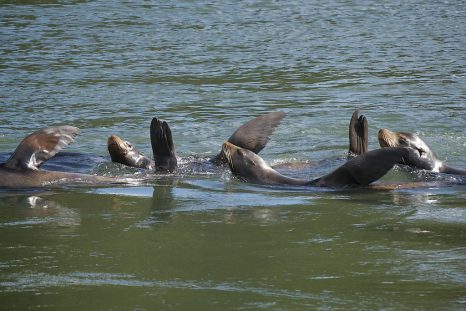
Sea lions moving into smaller streams – “They’re working on wild fish,”
In the past month or two, a few California (one Steller) sea lions have moved into the lower stretches of the Sandy River and as many as half-dozen (some say more) are devouring winter steelhead in the Clackamas River, as far up as Eagle Creek. Washington officials report sea lions prowling the lower Cowlitz, Lewis and Washougal rivers. And these aren’t just any winter steelhead tickling their palates. By this time of year, the earlier-arriving hatchery-origin steelhead run is largely finished, Todd Alsbury, department district fish biologist, told a group of sportfishing leaders in Clackamas. “They’re working on wild fish,” Alsbury said. “It could make Ballard Locks pale in comparison.” Remember Ballard Locks in Seattle? Apparently few, if any, real lessons were learned from the decimation of Lake Washington’s meager (2,000-3,000 fish) wild steelhead runs by Herschel and a handful of sea lions in the 1990s. Click here to read the article 14:12
Defining our future Down East
William Chadwick’s speech captured first place at the NCTSA conference in Greensboro April 5, 2017. His speech is about government regulations and conservation groups putting local fishermen out of business in Down East Carteret County. Government regulations our killing our communities, schools and churches, this is not just a Down East issue, this is happening all along the east coast. 11:22
Fishing-industry groups blast Inslee over his picks for federal council
 Gov. Jay Inslee’s handling of nominations for a federal fishery-council seat has come under attack from the leaders of major North Pacific fishing-industry groups, which have taken the unusual step of sending a complaint letter to the U.S. Secretary of Commerce.,, In their letter sent Tuesday, they asked Commerce Secretary Wilbur Ross to reject Inslee’s nominations and called for the governor to come up with some new names for a seat on the council. The industry backlash reflects the high stakes in fish politics, where the federal fishery council helps sets the rules for a billion-dollar groundfish harvest, much of which is caught and processed by Seattle-based companies. The letter is signed by the leaders of the Pacific Seafood Processors Association, At-Sea Processors Association, Groundfish Forum, and United Catcher Boats, whose membership collectively catches or processes most the groundfish. Read the article, click here 10:05
Gov. Jay Inslee’s handling of nominations for a federal fishery-council seat has come under attack from the leaders of major North Pacific fishing-industry groups, which have taken the unusual step of sending a complaint letter to the U.S. Secretary of Commerce.,, In their letter sent Tuesday, they asked Commerce Secretary Wilbur Ross to reject Inslee’s nominations and called for the governor to come up with some new names for a seat on the council. The industry backlash reflects the high stakes in fish politics, where the federal fishery council helps sets the rules for a billion-dollar groundfish harvest, much of which is caught and processed by Seattle-based companies. The letter is signed by the leaders of the Pacific Seafood Processors Association, At-Sea Processors Association, Groundfish Forum, and United Catcher Boats, whose membership collectively catches or processes most the groundfish. Read the article, click here 10:05
Representative Beverly Boswel is passionate about commercial fishing
 I recently read the article, “The Boswell Backlash” by Michelle Wagner, dated March 21. As one who spends a considerable amount of time in Raleigh, representing our state’s commercial fishing families, I would like to offer some comments about Representative Boswell’s responsiveness and attentiveness to the issues facing that very important constituency in Dare County. Over the course of my 30 years of involvement in the legislative process while representing commercial fishing interests, I have found very few with the appreciation and zeal for assuring that commercial fishermen are represented in our General Assembly. Beverly Boswell is at the head of that list in the short time that she’s been in office. continue reading the letter here 09:05
I recently read the article, “The Boswell Backlash” by Michelle Wagner, dated March 21. As one who spends a considerable amount of time in Raleigh, representing our state’s commercial fishing families, I would like to offer some comments about Representative Boswell’s responsiveness and attentiveness to the issues facing that very important constituency in Dare County. Over the course of my 30 years of involvement in the legislative process while representing commercial fishing interests, I have found very few with the appreciation and zeal for assuring that commercial fishermen are represented in our General Assembly. Beverly Boswell is at the head of that list in the short time that she’s been in office. continue reading the letter here 09:05

“We’re adjacent to the shrimp, we’re adjacent to the shrimp,” Inshore shrimp fishermen raise a ruckus outside MP’s office
The chant at a rally of shrimp fishermen in Grand Falls-Windsor Wednesday may have sounded unusual to those who don’t follow fisheries issues closely, but demonstrators say it underscores a crisis that could wipe out their livelihood. “We’re adjacent to the shrimp, we’re adjacent to the shrimp,” chanted members of the Newfoundland and Labrador Independent Fish Harvesters’ Association as they staged a demonstration outside the office of Liberal MP Scott Simms. The fishermen are outraged by new quota cuts for the inshore shrimp fishery off the northeast coast of Newfoundland. Terry Ryan, who fishes from La Scie, said the principle of adjacency — the concept that those who live closest to a fishing resource should have priority access — is paramount. Two video’s read the story here 08:23
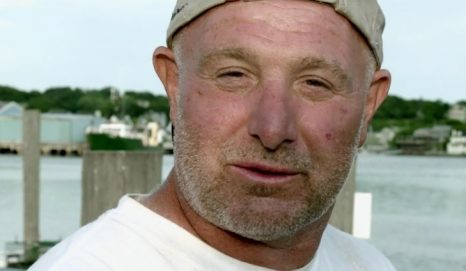
From Fisherman to scrap dealer – A Fisherman For Life, This Man Misses The Glouscester Fishing Industry
Sam Sanfilippo was once part of a booming cod fishing industry in Gloucester, Massachusetts. Today, government regulations put in place to maintain cod populations have forced many fishermen out of business. Watch the video, click here 07:59
Pacific Fishery Management Council meeting in Sacramento April 6-11, 2017
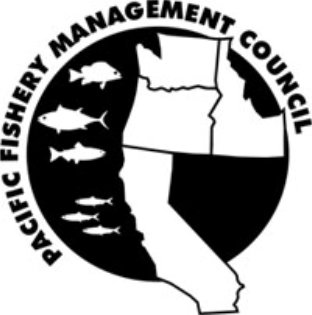 The Pacific Fishery Management Council and its advisory bodies will meet April 6-11, 2017 in Sacramento, Ca. at the DoubleTree by Hilton Sacramento to address issues related to salmon, groundfish, coastal pelagic species, Pacific halibut, and habitat matters. For agenda item topics, please click to see the April 2017 meeting notice with a detailed agenda. The Council meeting will be live‐streamed. Click here to Listen to the Live Audio Stream For more details, click here 19:58
The Pacific Fishery Management Council and its advisory bodies will meet April 6-11, 2017 in Sacramento, Ca. at the DoubleTree by Hilton Sacramento to address issues related to salmon, groundfish, coastal pelagic species, Pacific halibut, and habitat matters. For agenda item topics, please click to see the April 2017 meeting notice with a detailed agenda. The Council meeting will be live‐streamed. Click here to Listen to the Live Audio Stream For more details, click here 19:58
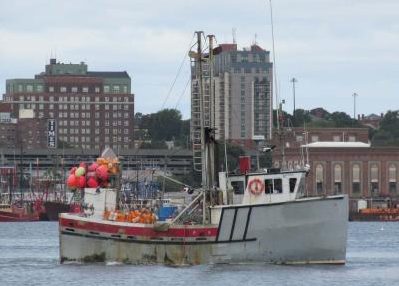
Athearn Marine Agency Boat of the Week: 44′ 11″ x 8′ Novi Longliner, 500HP Cummins, 10 KW Genset, Permits Available
Specifications, information and 8 photo’s click here To see all the boats in this series, Click here 18:13
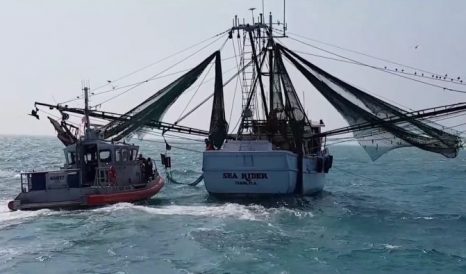
Coast Guard medevacs man, 19, from shrimping boat
The Coast Guard medevacked a 19-year-old man Wednesday from a shrimping boat 7 miles west of Egmont Key. At 10:07 a.m. watch standers from Sector St. Petersburg received a VHF-FM marine band radio channel 16 call from the captain of the 78-foot shrimping boat Sea Rider. He stated one of his crew members was experiencing chest pains and in need of emergency medical assistance. A flight surgeon was notified and recommended the 19-year-old be medevacked. The Coast Guard Cutter Tarpon crew and a 45-foot Response Boat-Medium boat crew from Station Cortez were launched. The Tarpon crew initiated first aid on the man and coordinated with the Station Cortez crew for transport to Fort De Soto Bay Pier where EMS were waiting. The man was transferred to the EMS in stable condition. Click here to watch video 17:50
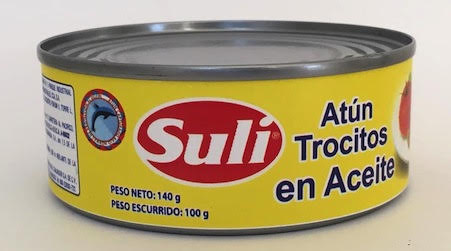
Walmart Exposed for Selling Dolphin-Deadly Tuna in Costa Rica
Investigations by the nonprofit International Marine Mammal Project (IMMP) have revealed that, in its Costa Rican locations, Walmart has been selling its own brand of canned tuna that has been caught using fishing methods that harass and kill dolphins. These practices make Walmart’s tuna brand — called Suli — dolphin-deadly, though Suli tuna cans carry a misleading seal claiming that the tuna is dolphin safe.,,, In what appears to be a deliberate attempt to mislead consumers, on its Suli label, Walmart includes a blue dolphin seal with the words: “Tuna caught under dolphin protection standards” in Spanish. The cans also note that the tuna is a “Product of Mexico.” click here to read the article 15:00
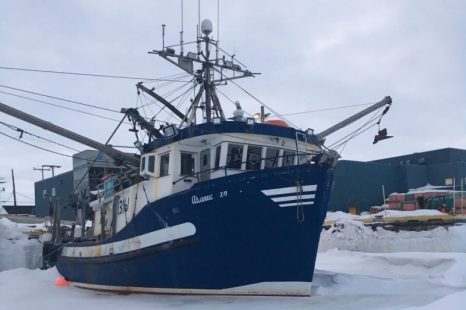
Shrimp industry instability ‘nerve wracking’
When Rodrick Cornick bought into the inshore shrimp fishery three years ago he expected a better future. Cornick operates the Atlantic Explorer, co-owned with Terrence House, based out of Port aux Choix. They fish for shrimp in area 6 out of St. Anthony. When Cornick bought a share of the enterprise in 2014, he says his shrimp quota would have been equivalent to 1.1 million pounds. At that time, he had little idea what was to come. “Here in the gulf area, the shrimp fishery has been on the go for 40 years and has been fairly consistent,” explains Cornick. “And down in area 6, the banks lent me money based on 20 years of steady allocations.” Then the bottom fell out.,, Cornick also questions the methodology used by DFO to determine the shrimp biomass. read the story, click here 14:11
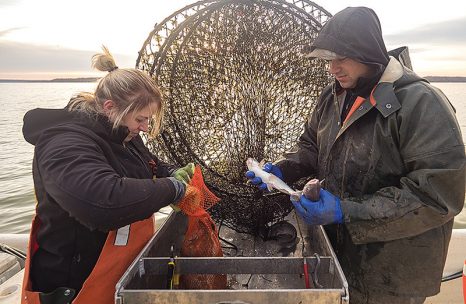
“Eat the Invasives” – New catfish reg threatens watermen’s livelihood, Chesapeake Bay
Richard Turner Jr. maneuvered his Carolina Skiff around Gunston Cove in the Potomac River, then hoisted a hoop net out of the water that he’d left there hours ago. Inside wriggled a 12-pound blue catfish. These mustachioed menaces have been eating their way through the Potomac River and the rest of the Chesapeake Bay for the last decade. They can grow to 5 feet long and weigh up to 100 pounds while gobbling up other commercially valuable fish, such as menhaden and blue crabs. Turner and a growing number of fishermen are turning the tables on these invasive predators. Spurred on by a burgeoning market and the lack of any harvest limits, the blue catfish commercial fishery has taken off. But a new federal regulation could disrupt what many see as one of the most successful “eat the invasives” campaigns in the country. Under legislation passed by Congress years ago to protect Mississippi’s farmed catfish industry from foreign imports, sales of any type of catfish, including these wild-caught in the Chesapeake region, will be subject to inspection by the U.S. Department of Agriculture. The requirement takes full effect in September. continue reading the story here 11:51
Trying to make a living
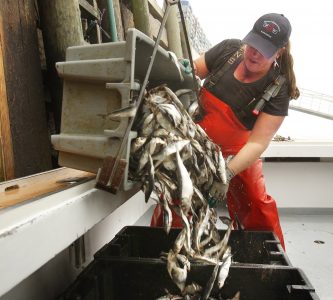 As soon as Old Man Winter indicates he’s loosening his grip on the Maine coast and spring is finally in the air, lobstermen will begin to rig their traps in preparation for the upcoming fishing season. One of their prime concerns this year, as in any year, will be questions about bait supplies and costs. Like other businessmen, how much money lobstermen take home at the end of the day, and what their annual profits will be, depends upon their costs and the price per pound their lobsters bring at the dock. In addition to any boat payments they may have, and for some fishermen with newer boats, these are high, they’ll be eyeing current fuel and bait costs.,, continue reading the op-ed here 10:32
As soon as Old Man Winter indicates he’s loosening his grip on the Maine coast and spring is finally in the air, lobstermen will begin to rig their traps in preparation for the upcoming fishing season. One of their prime concerns this year, as in any year, will be questions about bait supplies and costs. Like other businessmen, how much money lobstermen take home at the end of the day, and what their annual profits will be, depends upon their costs and the price per pound their lobsters bring at the dock. In addition to any boat payments they may have, and for some fishermen with newer boats, these are high, they’ll be eyeing current fuel and bait costs.,, continue reading the op-ed here 10:32
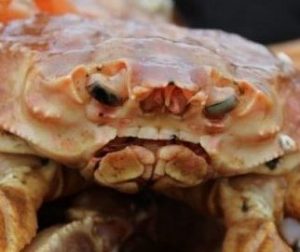
Editorial: Fished out – It’s hard, hard times.
It’s a veritable seafood platter of bad news: a collapsing shrimp quota, falling crab numbers, and a cod stock not remotely healthy enough to even think about having as a fisheries mainstay. The worst part of the news came as a one-two punch: Friday, a 63 per cent cut in the Area 6 shrimp quota. Monday, a 22 per cent cut in crab quotas. The cod? Early last week, scientists made it quite clear that the stocks aren’t healthy enough yet to be any sort of late-breaking fisheries savior. Cod stocks are still in the critical stage; rebuilding, yes, but not anywhere near enough to support an expanded fishery. continue reading the op-ed here 09:57
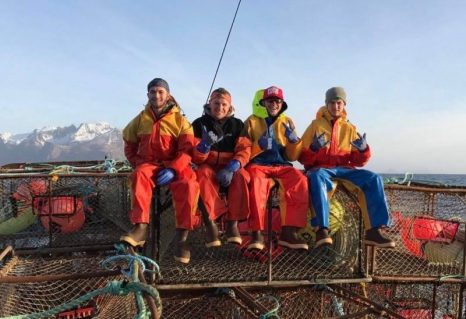
North to Alaska! Young Maine Fishermen test their mettle in Homer
A group of friends, Mount Desert High School alums, got a taste of what it’s like to be “Deadliest Catch” fishermen after spending several weeks this winter fishing for cod out of Homer, Alaska. “Deadliest Catch” is the Discovery Channel series about a fleet of king crab fishermen in Alaska’s Bering Sea. It documents one of the deadliest professions in the world. Naturally, such a an experience appeals to young men, which is what prompted Colby Candage, 18, Andrew Hanscome, 19, John Phelps, 20, and Boomer Carroll, 21, to trek across the country for a taste of the demanding profession. Candage, the youngest full-time captain in the Bar Harbor lobster fleet, had just completed his first full season on Gitn’RDun, his 35-foot Duffy, and was looking for something to do in the off-season. continue reading the story here 08:19

Advanced workboat propulsion controls unveiled
Twin Disc has introduced contactless sensors to its range of commercial-grade propulsion controls for workboats. The EC300 Power Commander now comes with magnetic, contactless hall-effect sensors for monitoring lever position. Twin Disc said this outlasts other electro-mechanical and potentiometer type sensors for longer shifting service life. Tests with the EC300 demonstrated that there was no single loss of lever position signal in four million cycles. Twin Disc said EC300 single and twin lever control heads have superior transmission and throttle handling because of the contactless sensors. Read the rest of the story here 17:52








